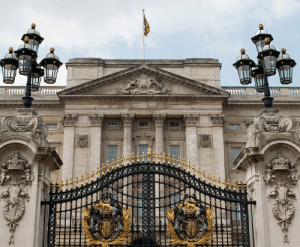
There are stories that history forgets and then there are those that refuse to die. The saga of Virginia Roberts Giuffre and Jeffrey Epstein belongs to the latter. It has long transcended the courtroom, the media frenzy, and the hush of palace corridors. What began as a sordid scandal involving wealth, privilege, and predation has evolved into a moral reckoning, one that now clings, unshakable, to the legacy of Prince Andrew, Duke of York.
Even in death, Virginia’s voice refuses silence. She speaks from the grave through the indelible mark she left on the conscience of the public and her recently published autobiography. Her story is engraved in the collective memory, a young woman caught in the orbit of a billionaire predator, drawn into a web of exploitation and power that ensnared the high and mighty. Her name has become shorthand for a system that failed her and others like her. It’s a haunting truth that echoes louder than any royal denial.
Prince Andrew, for his part, is condemned to live under the shadow of that echo. The man who once carried the easy arrogance of royalty has been reduced to a symbol of disgrace. No carefully worded statement, no settlement, no staged walk to church beside his mother, the late Queen, can wash away what the public already decided: this is his inheritance. Not his titles or his medals, but his infamy. He will live with it, because such stains don’t fade. They deepen with time.
The world watched, transfixed, as the façade of royal immunity cracked. The BBC interview, the now-infamous “I don’t sweat” debacle, wasn’t just a PR disaster; it was a moment of revelation. It exposed a man who had no grasp of the magnitude of what he represented, a man clinging to excuses that sounded absurd even to his own generation. For once, the public saw a prince stripped of pomp and protection, and they didn’t like what they saw.
Epstein may have died in his cell, but his ghost walks free in the corridors of power, a grim reminder of how privilege can shield the guilty while justice limps behind. Giuffre, too, in her own way, remains alive in the narrative, her courage immortalized by the simple act of telling the truth when silence would have been easier. That truth has now become Andrew’s lifelong companion, the shadow that will follow him until his final breath.
History is merciless with men like him. Royal lineage cannot rewrite the record. Public memory is democratic, it doesn’t bend to titles or bloodlines. The British monarchy, an institution built on image, ceremony, and continuity, thrives on the perception of moral superiority. Yet, this scandal sliced through that illusion like a blade. It reminded the world that crowns are merely metal when morality is compromised.
Andrew’s defenders speak of mistakes, of misjudgement, of trust misplaced in bad company. But such arguments ring hollow. Misjudgement does not explain the photographs, the parties, the associations that persisted long after the truth about Epstein began to surface. It doesn’t explain the absence of empathy, the absence of contrition. It doesn’t explain why a prince who once flew rescue missions as a naval officer couldn’t seem to rescue his own reputation with a simple act of decency, an honest apology.
Instead, he chose silence, settlement, and exile. And though the palace may prefer to move on, the world won’t. The court of public opinion has long rendered its verdict. Prince Andrew is not simply disgraced; he is a cautionary tale about what happens when power believes itself untouchable.
The irony is brutal. The British royal family has weathered wars, divorces, abdications and scandalous affairs. But few events have so fundamentally eroded the moral capital of the monarchy as the Epstein connection. For many, it was the final unravelling of a mystique, the moment the velvet curtain fell away to reveal not divine right, but human frailty, entitlement, and failure.
Virginia Roberts Giuffre may no longer be alive to watch the unfolding of her own legacy, but her story has already achieved what she could have hoped for most: truth in the open. She named the names, told her story, and exposed a network of exploitation that operated with impunity for years. And though she was once just a girl whose voice could be dismissed, she became the woman who forced the world to listen.
It is a cruel twist of fate that Andrew’s punishment is not prison, but memory. He walks the grounds of royal estates with the knowledge that history has already chosen its narrative. The photos remain, the transcripts remain and the doubts remain. He is, in the public eye, the man who couldn’t sweat his way out of scandal.
Legacy is not something one can bargain with, and for Andrew, it is already sealed. Centuries from now, when the genealogists of the future trace the House of Windsor, they will stumble upon his name and pause not for his titles or his service, but for the scandal that refused to die. His is a story not of tragedy, but of consequence.
Virginia’s ghost lingers not to torment, but to remind. She stands for all those silenced by wealth and power, for those who never got the chance to tell their stories. And in that haunting, there is justice of a sort.
Prince Andrew will live with it. He will dine with it; walk with it, and age with it. Every headline, every hushed conversation, every awkward silence in the corridors of the palace will whisper the same refrain: this is what remains when truth outlives denial.
In the end, the monarchy will survive, as it always does. But Andrew’s name will forever carry a footnote, an inerasable asterisk beside the grandeur of the crown. And Virginia Roberts Giuffre, in her quiet, enduring defiance, will have the final word.
Because sometimes, history doesn’t need a voice to speak. It just needs a ghost.

No comments:
Post a Comment